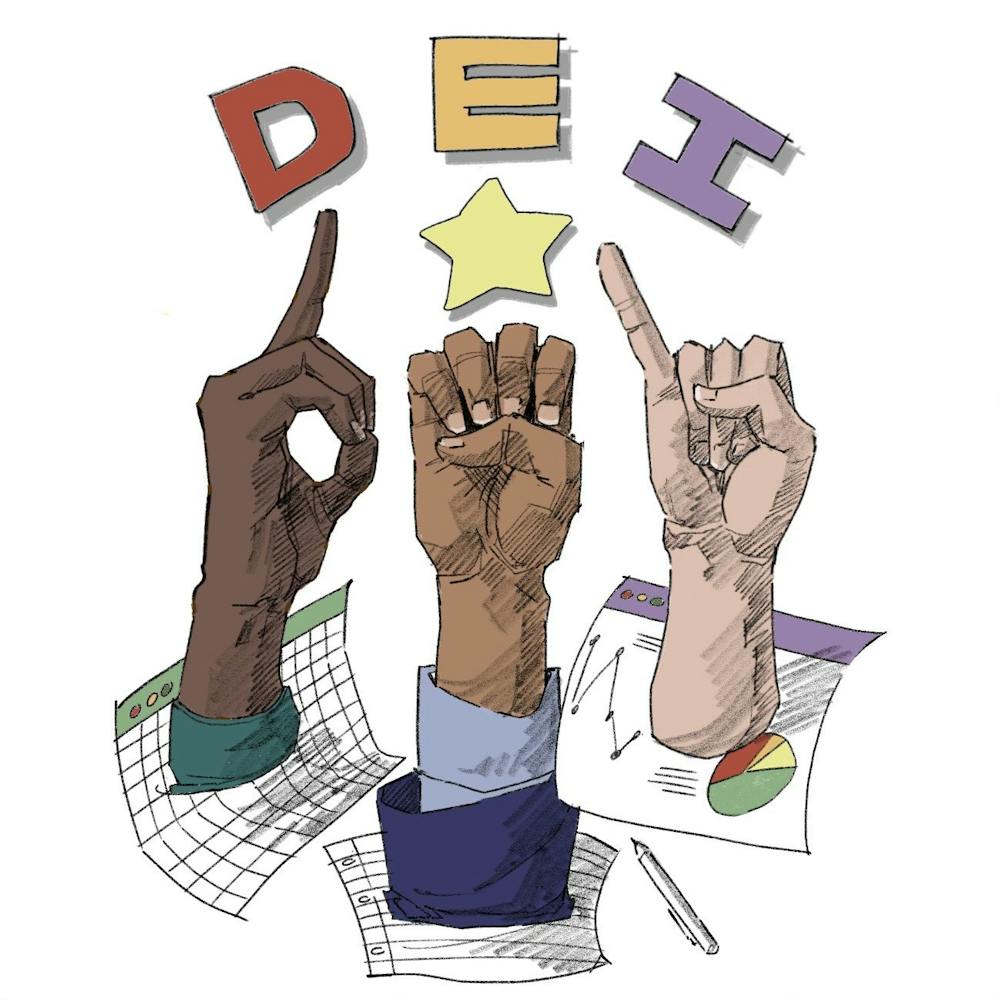By Lake DiStefano
Opinions Editor
President Donald Trump has made many changes within the first few weeks of his second presidential term. Among his many contested ideologies, the main one I see argued the most is that of his distaste for the various diversity, equity and inclusion programs and policies throughout the country — both on a federal and private level.
DEI is essentially any program or policy which aims to provide access to minority groups. Such policies are often facilitated by training programs, resource networks and recruiting practices.
The debate centers mostly around the feasibility and necessity of such policies. After all, the American dream, in all its flawed yet endlessly cited glory, is inherently a meritocracy.
My curiosity regarding this was sparked recently when, during a news conference about the tragic Jan. 30 plane crash in Washington, D.C., Trump adamantly suggested that DEI programs were inadvertently responsible, due to allowing “less qualified” air traffic controllers to be involved in the operation.
In tandem with Trump’s impassioned condemnation of DEI, a slew of companies have rolled back their internal DEI policies as a result of this federal pressure, including Amazon, Target and Toyota.
This idea of help towards those perceived as diversity hires, however deserved, sits awkwardly with many. Shouldn't we strive to award merit based purely on merit’s sake? Why should we lower the barrier of entry for people based on attributes which seemingly have nothing to do with capability and qualifications?
This is the misconception which animates this debate. I too was skeptical of such an approach, and decided to do some research into what the benefits of these policies actually consisted of.
While the immediate image of DEI that comes to mind is hiring people of different minority groups simply to meet a quota — in theory leading to underqualified hires simply for the sake of meeting said quota — DEI in actuality is far more nuanced than that.
Many groups of people enjoy the benefits of these policies, and in many cases, they are far from being about the hiring process at all. For example, policies which accommodate already hired and working parents, via flexible hours, often qualify as DEI.
Furthermore, DEI programs also extend benefits to veterans via federal funding — which President Trump’s executive order is working to cancel — as well as accommodations for disabled students who need extra time on exams, assistive technology for note-taking or accessible housing on campuses.
All of these things fall under DEI initiatives, and I feel that these benefits are objective goods being done — all the while having nothing to do with any idea of being qualified for some arbitrary position.
If an opposition in this case were to be a person with empathy, I don't really get how one could fully say these benefits do not at least make the discussion a little more nuanced than “DEI must DIE,” as Elon Musk, a close supporter of President Trump, wrote on X.
It becomes clear, the more you squint at it, that DEI is not solely about hiring to meet a quota — although admittedly that is undeniably a part of it in many cases. DEI is sometimes simply about accommodating those who need a little extra support, and are otherwise perfectly qualified for whatever they are taking part of — whether it be a company, school or simply living life.
Surely, if these opposing sentiments are being levied with a genuine care for a lack of fairness, wouldn’t there be a better way to go about expressing it? It seems to me that DEI is being used more as a sacrificial symbol for the end of the Biden administration, and all the ideals associated with it, than an actual set of policies which fall under its umbrella.
In this case, it makes any and all critique of DEI, however true, feel painfully unempathetic. There must be an attempt made to convey the topic with its full range of pros and cons, rather than selectively painting it as something that it is categorically not — at least not in its entirety.
So no, I don’t personally feel people actually know what DEI is. It seems impossible to me that anyone can see some of the great accommodations afforded as a result of DEI, and declare that the entire thing is, for lack of a better term, woke.
While I am always for any needed pushback to diversity quotas and self-indulgent policies of progress which do more harm than good, I can’t help but wish that people would take the time to properly articulate about DEI when discussing it. One should provide caveats, or at the very least theoretical reforms for it, when declaring that we should do away with the whole thing.
If the American dream is truly about everyone being able to succeed, regardless of circumstances, I find it ironic that we would want to eliminate the very means that help certain Americans do so.
We shouldn't throw the baby out with the bathwater, and being rash about upending programs which have helped fellow Americans for years now feels like exactly that.







